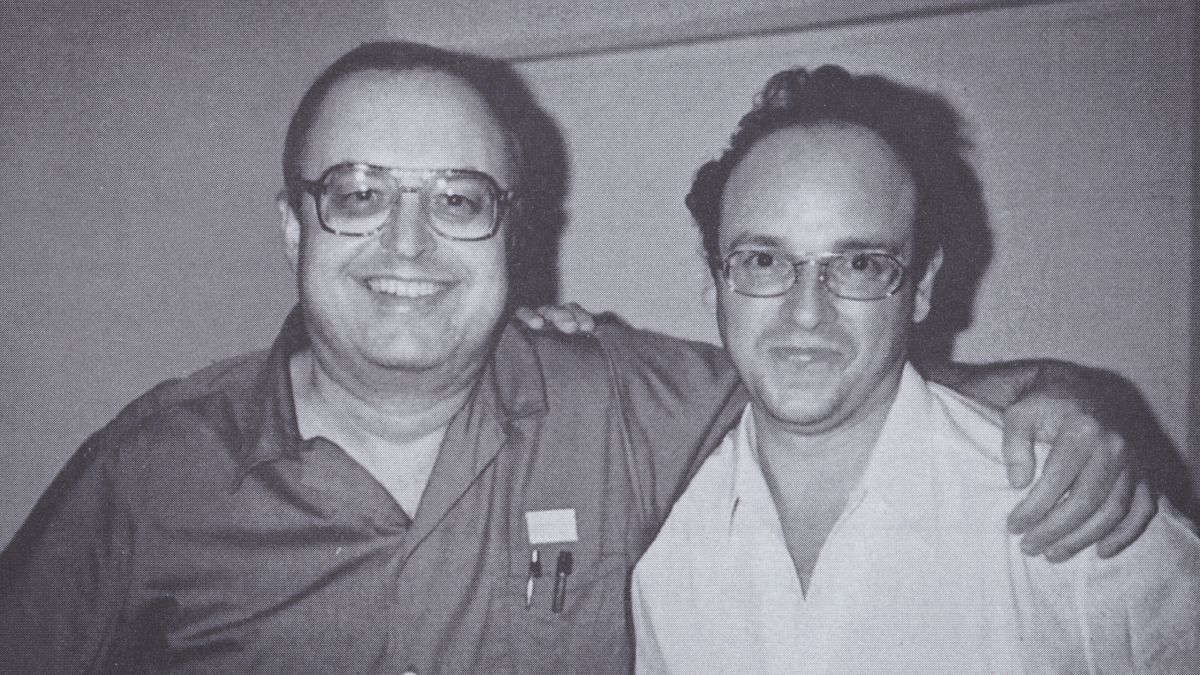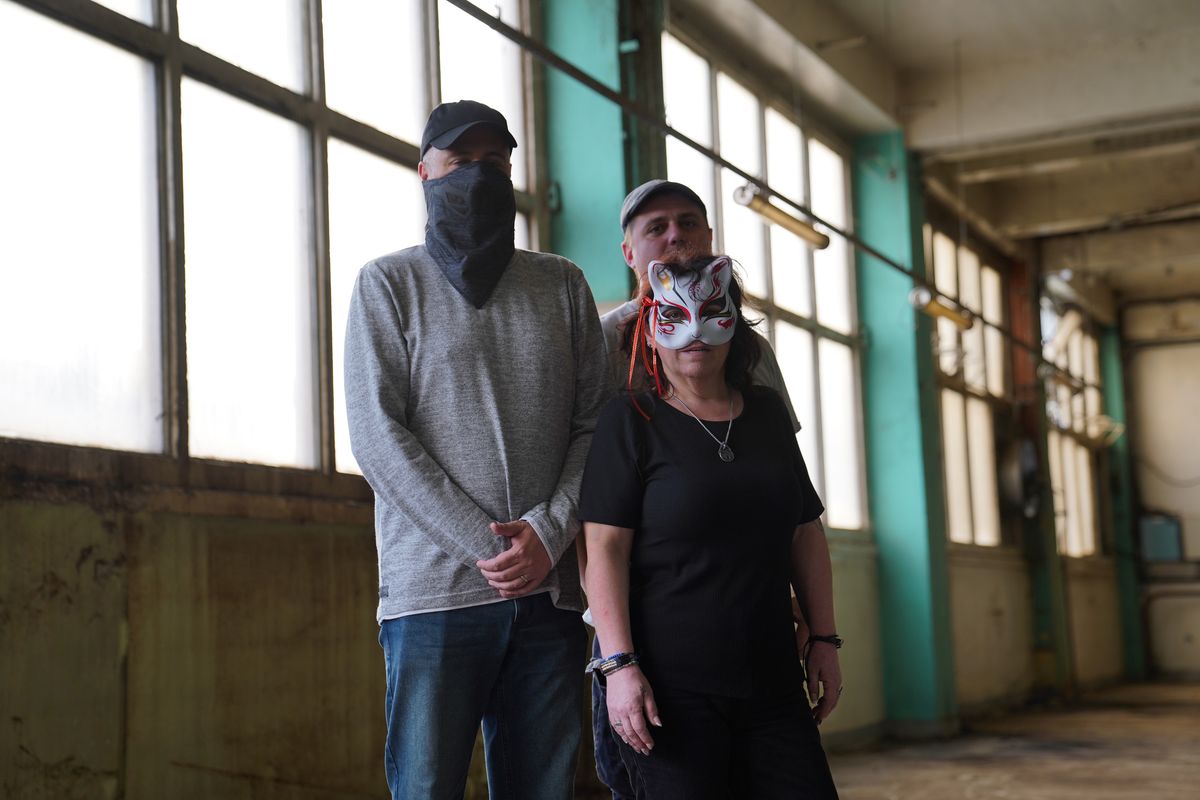Reel Rundown: ‘Killer Lies: Chasing a True Crime Con Man’ gives true crime followers everything they need to know and more about con man
Stéphane Bourgoin poses for a portrait with convicted killer Gerard Schaefer after Bourgoin interviewed him in 1991. "Killer Lies: Chasing a True Crime Con Man" is a documentary series about obsession and deception, following the unraveling of Stephane Bourgoin’s career as a best-selling author and serial killer expert. (Courtesy of Stéphane Bourgoin and Olivier Raffet)
It’s clear that we live in a culture obsessed with crime. Stories about crime are all over the daily headlines, they make favorite themes for best-selling-book lists and they serve as common plotlines for movies and television shows.
In recent years, the interest in true-crime reporting has risen appreciably. Shows such as “Dateline,” “Forensic Files,” “Snapped” and so many others attract a large share of the TV audience. And let’s not even get started on true-crime podcasts, the number of which – according to one 2024 report – amounts to, amazingly enough, some 23,000.
How many of these, though, are based on credible science? TV’s “Forensic Files” works hard to prove its credentials. Still, with guys such as Stéphane Bourgoin out there providing media fodder, it should make any true-crime fan think twice about trusting so-called experts, especially those the media rely on.
Frenchman Bourgoin is the focus of the three-part documentary series “Killer Lies: Chasing a True Crime Con Man,” which was directed by Ben Selkow. The National Geographic Channel streaming series is based on a 2022 New Yorker magazine article written by Lauren Collins.
Titled “The Unravelling of an Expert on Serial Killers,” Collins’ article put forth a simple thesis: Bourgoin, a man who had built his reputation over decades, is a liar. Even worse, he’s a con man. And Selkow’s three-part documentary details every step of her investigation – albeit maybe a bit too slavishly.
Bourgoin emerged in the 1990s, claiming that an incident in 1976 had been the inspiration for his obsession with serial killers. That incident involved the murder of what, at various times, he identified as his “wife” or “partner,” whose butchered body he had discovered.
He used that story to ingratiate himself to other crime victims. And then he claimed not just to have been trained by the FBI but to have used that training to interview a number of serial killers – 77 by one account. His subsequent career saw him write some 75 best-selling books while participating in numerous TV, radio, online and in-person interviews.
And during each, he told much the same story. Several of his fans, though, began to doubt what he was saying. And a group of them combined to form what they called the 4th Eye Corporation, which published YouTube videos pointing to Bourgoin’s inconsistencies.
Pretty soon the media began to catch up as well. In 2020, the French magazine Paris Match published an article in which Bourgoin owned up to at least some of his fabrications. Other publications, including the New Yorker, followed suit.
All of this is documented in Selkow’s series, which resorts to the over-dramatized effect of having some of the 4th Eye members appear in disguise (one woman in a Mardi Gras-type mask) to protect their identities. Collins and several others, including Bourgoin himself, participate in talking-head interviews
The problem is that there is little need for “Killer Lies” to be spread over three installments. Selkow could easily have covered everything in a single one-hour episode.
And, too, the series fails in its attempts is to get at the heart of why Bourgoin lied in the first place. Even when Selkow and Collins confront Bourgoin on camera, he never really explains his motivations. Yes, he admits, he did make up things. But all writers do the same. And, he insists, at heart he is an honest man.
Of course, maybe it’s too much to expect something so definitive. It may be enough that “Killer Lies” makes it clear that con-man Bourgoin, even beyond his obsession with murder, can be considered a sad symbol of our time
“We are in the era of scams,” Selkow told a Vanity Fair magazine interviewer, “and that’s not going anywhere.”

